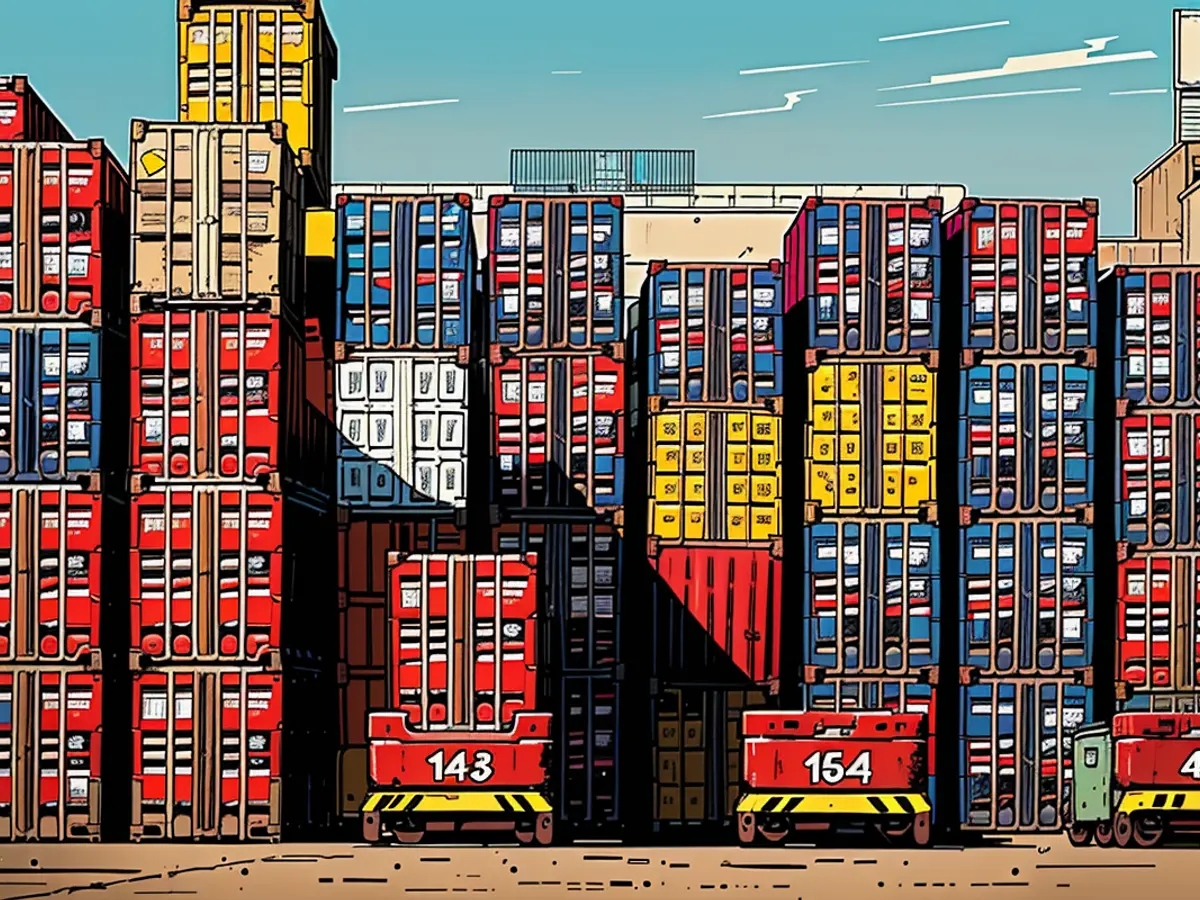Companies must reorganize their supply chains
Due to geopolitical crises and new trends, companies need to redesign their supply chains. According to a study by consulting firm PwC Germany, revealed on a Wednesday, global conflicts, climate change, and technological progress are causing "disruption" of existing business models.
This disrupts global supply chains permanently. The 1000 surveyed business leaders therefore feel pressure to rethink their entire supply chain concept. They plan to increase transparency, integrate Artificial Intelligence (AI) and robotics, and connect all parties to quickly identify and solve problems. However, according to the study, this is currently only achievable for a minority of supply chain managers.
A successful transformation has an immediate impact on competitiveness. The business leaders expect cost savings in the supply chain of 19% and sales increases of 16%. Companies that use the effects of the transition correctly can make themselves crisis-proof and expand their lead over the competition, according to a survey. PwC expert Stefan Schrauf stated that "disruptions are the new normal," and companies must therefore take steps to make their supply chains more adaptable and sustainable.
The greatest opportunities of the transition include new technologies that increase data visibility, automate processes and decision-making, and improve communication and collaboration. Above all, so-called digital twins, with which companies can analyze objects, systems, and processes virtually, offer great potential. Around 56% of companies predict that digital twins will have immediate effects on their procurement. Furthermore, 37% of companies that have fully adapted their supply chains technologically are already using them.
Because of the geopolitical crises and new trends, the company has to redesign its supply chains permanently due to the disruption caused. As a result, the company, like many others, feels pressure because of these changes and is planning to increase transparency, integrate AI and robotics, and connect all parties to quickly identify and solve problems. However, according to the PwC study, this is only achievable for a minority of supply chain managers.








